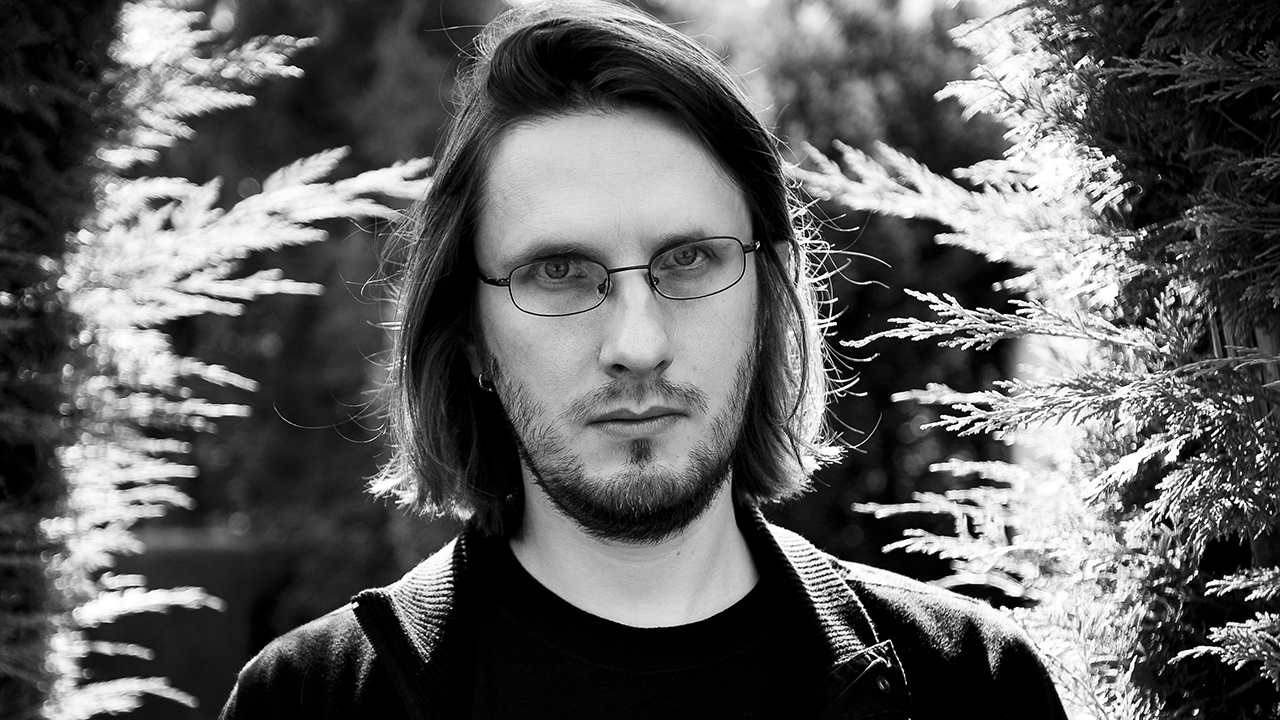The tragic story behind Mastodon's Emperor Of Sand
Mastodon's 2017 album, Emperor Of Sand, continued the prog theme of Crack The Skye. But behind the heaviness, lay a family tragedy

He’s out there somewhere, a lone figure in the middle of the desert. He doesn’t know how to go forward and he can’t go back. Eddies of sand swirl up around him until he disappears out of sight and becomes part of the landscape, a speck of sand among the endless swell of dunes. The sun’s almost at its highest and there’s no water and no shade. Then, at the periphery of his vision, something moves on the horizon. He shades his eyes to make out the figure that’s approaching. His skin suddenly prickles, turning cold in the sweltering heat. Run, he thinks, but to where? The desert reaches out forever until it falls into the sky. And then the shadow’s longer and almost upon him.
“People always get lost in our songs and on our records, there’s always a character trying to find something or someone. It’s like dreams, confused, where the hell am I?”
Mastodon guitarist Bill Kelliher is also far from home. He’s flown from Atlanta to the UK, and Prog is sitting with him on the fourth floor of his London record label, tall windows overlooking the plush apartment blocks set in lines off Kensington High Street. The band’s drummer and singer (Mastodon has three), Brann Dailor, is seated next to him. Bouncing off each other, they’re wry and dryly funny in the way that some Americans can be. Both grew up near Rochester in upstate New York – and used to frequent, unknowingly, the same record stores – and both now live a few blocks apart in the suburbs of Atlanta.
They’re here to talk about Emperor Of Sand, their seventh album, its concept and genealogy, and the bogeyman who haunts the grooves of the record and the dreams of the album’s protagonist.
“He’s a metaphor, some kind of Grim Reaper,” says Dailor. “Not a good feeling from that guy, the Emperor.”
It’s a concept album (not their first – see the box out) with the hero on the run from the death penalty, lost, alone and hungry in a desert wasteland, with a fate worse than death haunting his every step out among the endless dunes. So far, so fantastical, and so very Mastodon. But as Kelliher puts it: “It all came from a very real place.”
While the band were writing and recording Emperor Of Sand, Kelliher’s mother was dying from cancer. He talks now about sitting by her bedside as she slept. After he’d fed her and held her hand, he would put his headphones on, plug his guitar into his computer and write and play at her side as her life force diminished and faded away, bringing songs to life even in the throes of death. “I had to do something to stop myself going crazy,” he says. “To stop from crying my eyes out.”
Sign up below to get the latest from Prog, plus exclusive special offers, direct to your inbox!
There’s a cancer ad here in the UK where the patient is portrayed as vulnerable and lost in a faceless, icy tundra, the wind ripping at his clothes, the snow blinding his eyes until a nurse reaches out to him and brings him back to the world. Given Kelliher’s predicament and the fate of his mother, it’s not too difficult to make the transition from a frozen world to the baking sands of an arid, dusty hell.
“That how I felt when I lost my Ma to cancer,” says Kelliher. “She was wandering lost in her own mind. If you can get a message out of the lyrics and the record and everything, then it’s ‘Let’s live in the moment, because you never know.’ When you get handed that death sentence you’re searching for something, asking, ‘What can I do? Where can I find a cure? What doctors can I call?’ And every day my Ma was always reading and looking at her pill bottles and I knew she was going to die, so I was like, ‘Put it down, don’t worry about it, live right now.’ It’s the little things you get caught up in; you never know when your time’s going to be up.”
The old adage goes that art comes out of adversity, and the death of Kelliher’s mother was the spark that caused Mastodon’s creative fire to burn. In Emperor Of Sand the band have made an album that not only cements their legend, but typifies the unique place they occupy in modern music. It’s enigmatic and driven, with a brilliant, almost compressed sheen, oozes melody but clanks and hammers like an old steam train taking a hill. It’s full of surprises: it’s so very Mastodon.
It’s been 17 years since Brann and Bill left Victor in the State of New York and moved their lives to Atlanta to form Mastodon with bassist Troy Sanders and guitarist Brent Hinds. It was two years before they released their debut album Remission. Though it lacked some of the subtlety and grace of their later albums, its ferocity was to be admired, not ignored. It would signpost an enduring fascination with Elephant Man Joseph Merrick and help create some of the frenzied Mastodon tropes that are still evident today.
“We always keep evolving,” says Kelliher, “but it’s subconsciously. We’re human beings, we’re getting older, we’re experiencing more things. When we started, if you put that first record next to this record, it’s two totally different bands because we’re totally different people. I was a totally different person 20 years ago, even 10 years ago. It’s natural to mature, your tastes mature.”
In the space between their first and latest albums they dropped pills, drank liquor, touched the sky, sang about Moby Dick, colonies of Birchmen, a Blood Mountain. They played prog, rocked out, made metal and crafted their art. In summer 2014 they released Once More ’Round The Sun, an album that embraced their experimental bent and spiraling, escalating arrangements with a newer, more cohesive sense of songwriting. The band have always evolved, but this was an altogether sharper and more focused Mastodon, and they weren’t stopping for anyone.
“With the last few records, we’ve seen girls in the front screaming and singing along to the songs: I never expected to see that,” says Kelliher. “And there are kids there going, ‘My dad turned me on to you guys.’ I’m like, ‘Your dad? How fucking old are you?! How old am I?!’
“But I feel that each record has to outdo the last and keep on getting better, keep on going on a trajectory to a different place instead of always going in a straight line, which I feel we do. I like this area we’re in right now, I love these type of songs we’re doing.”
And while Mastodon are always moving forward, for Emperor Of Sand they took a slight u-turn and reached out to producer Brendan O’Brien (Pearl Jam, Rage Against The Machine), who had originally worked with the band on 2009’s Crack The Skye.
“We were thinking maybe Tony Visconti at first,” says Dailor. “We were loving the new Bowie record, it reminded the world how great Visconti is, too. I went to New York and I was going to meet with him, but I didn’t end up doing it. And I wasn’t sure where everyone in our band was at, you know? Are we going to go to New York and do a record? It just seemed like a bad idea and Bill was going through a horrible situation, Troy was going through some stuff as well, I didn’t have the best situation going on, Brent was butterflying around, doing his GTO band…”
“And Brendan’s from the Atlanta area,” says Kelliher. “We wanted someone we could trust and we had a studio in mind, The Quarry, which is in Kennesaw. It’s a drive, but we could still sleep in our beds every night. We needed that base to make it work.”
“I think it was important for us to have some familiarity and let’s not forget, it’s Brendan O’Brien!” says Dailor. “Plus, he also understands that fine line between prog, catchy melodies, metal… He said, ‘You guys are writing pop music: it’s like a bunch of crazy people writing pop songs!’”
It’s been more than six years since the band worked with Brendan, but picking up where they left off clearly wasn’t a problem. Dailor says, “Honestly, it was like the next day: ‘Hey man, Brendan!’”
“It’s like seeing an old friend,” says Kelliher. “Let’s all make a beautiful record together. He was very excited about it and was there hands-on 24/7; the band needed that.
“I felt more camaraderie with Brendan on this record just because of where I was in my life then. With Crack The Skye it was mostly Brent, his riffs and his songs that we all helped put together. So, naturally, it was more his vision, him and Brendan; he took precedence. With this it was kind of the other way around. I felt closer to it, not in control of the ship necessarily, but I was standing up and talking to him and getting my input in and bouncing ideas off him. It was great.”
“Also, he’s very committed to a fast decision,” says Dailor. “Even when it comes to deciding where you’re going to eat! He has this spontaneity: ‘Did you say you had an idea for this vocal part? Go sing it, great, let’s keep it, that works, let’s finish it.’ And it doesn’t have to be perfect as long as it has the energy, which he’s great at capturing. On Crack The Skye, he was like, ‘Let’s get into some percussion.’ I was like, ‘I don’t play percussion,’ but then I did...”
Bassist and vocalist Troy Sanders has stated that Emperor Of Sand “ties into our entire discography. It’s 17 years in the making, but it’s also a direct reaction to the last two years. We draw inspiration from very real things in our lives.” Dailor surmises that the lead protagonist both dies and is yet saved at the story’s end. Whether it’s an allegory for the ravages of cancer and the loneliness and suffering brought on by terminal illness, or simply the story of a lost soul trying to find his way through endless desert sands with Death at his shoulder, the message is implicit: Mastodon are moving forward, progressing ever further. Here they come, blinking into the light.
This article originally appeared in Prog 75.
Philip Wilding is a novelist, journalist, scriptwriter, biographer and radio producer. As a young journalist he criss-crossed most of the United States with bands like Motley Crue, Kiss and Poison (think the Almost Famous movie but with more hairspray). More latterly, he’s sat down to chat with bands like the slightly more erudite Manic Street Preachers, Afghan Whigs, Rush and Marillion.

